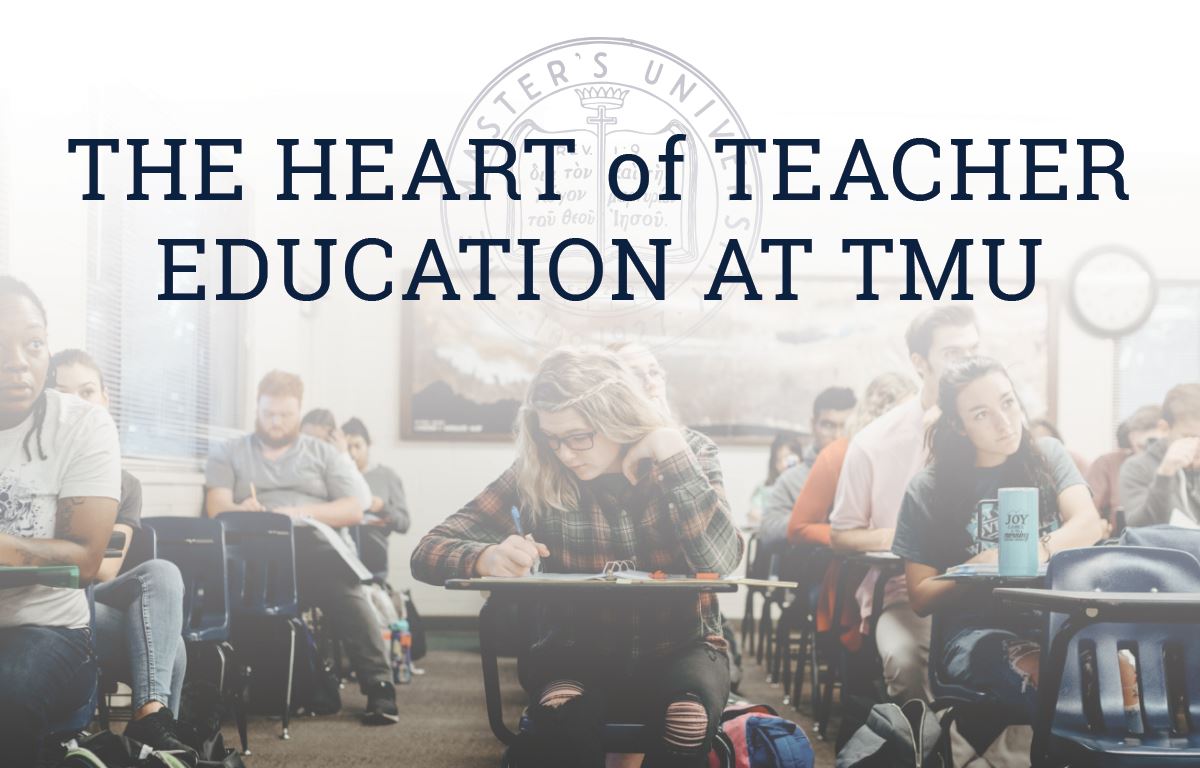
In TMU’s Teacher Education programs, the starting place is this: students are the curriculum.
The curriculum is not the textbook, it certainly isn’t a program, and it isn’t even the favorite unit that’s been taught for several years. Teachers intuitively know this to be true, yet so often they return to the default setting and simply follow “the curriculum.” But, doing so sets up learning to be nothing more than task completion measured by how well students comply with those expectations. Grades become the only commodity of value in the classroom, failure is not an option, and risk avoidance becomes a daily reality.
It should be no surprise that students openly share their dislike of school under those circumstances. Even so, if you talk with students, you discover that they still value learning—even desire to learn. This may seem like a paradox. It’s not. It’s for this reason that we in the Pearl C. Schaffer School of Education believe that teachers hold a crucial role in igniting a love for learning, if they are willing to listen to their students.
Establishing relationships with our students has an important impact on learning. In their book Teach on Purpose, Leslie Burns and Stergios Botzakis discuss the need to be responsive to our students’ learning needs. Christopher Edmin calls this reality pedagogy. Teachers, then, become learners—not just of the content to teach, but also of their students.
This kind of teaching is an act of empathy that starts with honest conversations. The dialogue that occurs as a result will only further shape and develop a curriculum that is fluid and flexible. While a basic outline of content based on standards and overarching learning goals must be defined, there are many ways to teach that content, there are many ways for students to access that content, and there are many ways for students to demonstrate that they have learned that content. No textbook or mandated curriculum can do that. The only one who can is the teacher who is constantly listening to his or her students, adapting, and reshaping the learning experiences for the students.
Teaching is not easy. There is a complexity to the work. It is for this reason that the courses in the Teacher Education programs at TMU equip and empower teachers to design learning experiences that not only meet the needs of students, but also engage them in relevant and meaningful learning.
For more information on our Teaching Education programs at TMU, click here.

The Master’s University and Seminary admit students of any race, color, national and ethnic origin to all the rights, privileges, programs, and activities generally accorded or made available to students at the school. It does not discriminate on the basis of race, color, national and ethnic origin in the administration of its educational policies, admissions policies, scholarship and loan programs, and athletic and other school-administered programs.
21726 Placerita Canyon Road
Santa Clarita, CA 91321
1-800-568-6248
© 2025 The Master’s University Privacy Policy Copyright Info
| Cookie | Duration | Description |
|---|---|---|
| cookielawinfo-checkbox-analytics | 11 months | This cookie is set by GDPR Cookie Consent plugin. The cookie is used to store the user consent for the cookies in the category "Analytics". |
| cookielawinfo-checkbox-functional | 11 months | The cookie is set by GDPR cookie consent to record the user consent for the cookies in the category "Functional". |
| cookielawinfo-checkbox-necessary | 11 months | This cookie is set by GDPR Cookie Consent plugin. The cookies is used to store the user consent for the cookies in the category "Necessary". |
| cookielawinfo-checkbox-others | 11 months | This cookie is set by GDPR Cookie Consent plugin. The cookie is used to store the user consent for the cookies in the category "Other. |
| cookielawinfo-checkbox-performance | 11 months | This cookie is set by GDPR Cookie Consent plugin. The cookie is used to store the user consent for the cookies in the category "Performance". |
| viewed_cookie_policy | 11 months | The cookie is set by the GDPR Cookie Consent plugin and is used to store whether or not user has consented to the use of cookies. It does not store any personal data. |
Notifications